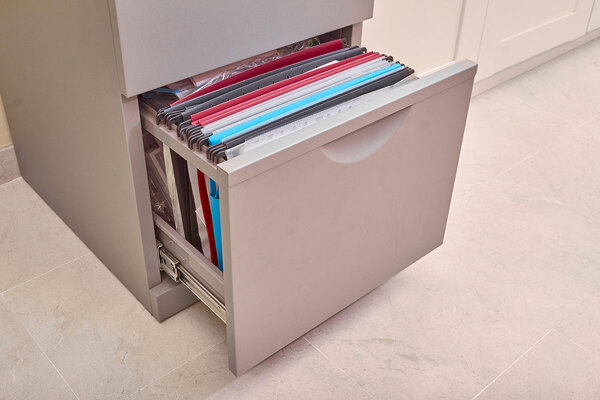You are viewing 1 of your 1 free articles
Welsh draft Budget ‘in hard times’ could risk service delivery, housing sector bodies warn
Leading housing organisations in Wales have warned that the government’s draft Budget amounts to a real-terms cut and could leave service delivery unaffordable.
Community Housing Cymru (CHC) and Cymorth Cymru (CC) made the warning after the Welsh government described its Budget for 2023-24 as “one of the hardest since the start of devolution”.
Announcing the draft Budget yesterday, the Welsh government explained it had to reprioritise funding from within its budgets to maximise support for public services and for people and businesses most affected by the cost of living crisis and recession.
The draft Budget also allocated additional funding that came to Wales through Jeremy Hunt’s Autumn Statement in November.
While the budget aims to build on the spending plans set out in the three-year Budget outlined in March, it was lacking in new support for the housing sector in Wales.
Last year’s draft Budget, confirmed in March, revealed plans to spend £310m in Social Housing Grant in 2022-23, up from £250m this year.
It also confirmed plans to spend £330m on Social Housing Grant in 2023-24 and £325m in 2024-25, as well as allocated £27.5m over the next three years on homelessness prevention and housing support.
In comparison, some of the key announcements from yesterday’s draft Budget included an extra £165m for NHS Wales to help protect frontline services.
This is in addition to £227m provided to local government to help safeguard the services delivered by councils – including schools – as well as delivering the Real Living Wage in social care.
The Welsh government will provide further support to education with an extra £28m, a total of £60m over the next two years to support Wales’ ongoing humanitarian response to the war in Ukraine and the thousands of people who have sought safety and sanctuary in the country.
Additionally, £18.8m has been set aside for the Discretionary Assistance Fund, which provides lifeline emergency cash payments to people facing financial hardship.
Welsh minister for finance and local government Rebecca Evans described it as “a budget in hard times” that has “been one of the toughest budgets since devolution”.
She explained that it was being delivered against a backdrop of the UK economy being in recession following a decade of austerity, Brexit and the pandemic.
She added: “Inflation has eroded the spending power of our budget, but not our ambition. We have taken very difficult decisions to make sure all our resources are used to help support people, businesses and services through the tough year ahead.”
With key spending on housing left unchanged despite, as the government admitted, inflation being at a 40-year high, sector bodies in Wales have raised concern about the Budget’s impact on investment and on people experiencing homelessness and frontline staff.
Clarissa Corbisiero, director of policy and external affairs at CHC, said: “With costs rising, we know that access to a safe, warm and affordable home and support services are more important than ever. The Welsh government is right to maintain investment in building much-needed social housing and housing associations will continue to do all that they can as key partners to deliver them.
“However, the final Budget in March will need to provide vital support to keep people safe and warm in their homes. A long-term financial plan to fund energy-efficiency measures in existing social homes as part of wider efforts to reduce fuel poverty was missing in today’s [Tuesday’s] statement, and any additional investment in tackling homelessness may fall short if core funding does not increase in line with inflation.”
Katie Dalton, director at CC, said her organisation was disappointed that the Housing Support Grant budget has not been increased, despite the significant number of people experiencing homelessness and the huge pressure on services.
She said: “A cash flat budget is a real-terms cut and there is a risk that service delivery becomes unaffordable due to the impact of inflation and high energy costs.
“We are also very concerned about the impact on frontline workers; this budget is likely to prevent a desperately needed pay increase for these key workers, who are doing incredible work but are being pushed further into poverty.”
Recent research from the CC revealed that 44% of frontline homelessness and housing support workers were struggling to pay their bills, 11% were struggling to pay rent, and around 80% were turning off heating, lighting and electrical appliances to make ends meet.
Ms Dalton added: “These figures are likely to be significantly worse this winter. We urge Welsh ministers to reconsider this decision and increase the Housing Support Grant in their final budget.”
The final Budget is expected in March.
In response to these concerns, the Welsh government said it recognises the vital role homelessness and housing support workers play in supporting people across Wales to live independently and to prevent homelessness.
A spokesperson said: “In recognition of this, we increased the Housing Support Grant budget by £40m in 2021-22 to £166.763m – a rise of more than 30%. Despite the perfect storm of pressures we are facing, we have maintained this uplift this year and in the 2023-24 draft Budget.
“The homelessness prevention budget will also increase by £15m in 2023-24 – an additional £10m more than previously planned.
“We have worked hard to maximise the impact of all our available resources as our overall Budget will be worth up to £1bn less next year than when it was originally announced.”
Sign up for our Wales newsletter
New to Inside Housing? Click here to register and receive our Wales round-up straight to your inbox
Already have an account? Click here to manage your newsletters











